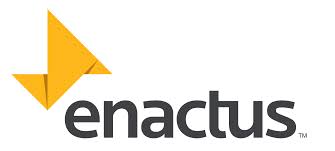Hope Springs Eternal: Spring Back Recycling
“Two community problems addressed with a simple, yet brilliant idea.”
–Doug McMillon, CEO and President of Wal-mart Stores Inc., speaking about the Enactus Belmont University team in this video about the Spring Back Recycling Project, a mattress recycling program that provides employment opportunities for those in need.
Enactus students have a knack for seeing opportunity where others may not readily see it. This talent helps them to create meaningful projects that impact the world through entrepreneurial action. In a series of videos, CEO members of the Enactus community tell the stories of these amazing projects as a part of the new Enactus #seeopportunity campaign. The Enactus Belmont University team in the USA saw two opportunities in their Nashville, Tennessee community and found a way to solve both with one amazing project.
In the USA, the industry norm is to send used mattresses to landfills. This results in 30 million mattresses added to landfills each year—mattresses that can take over a decade to decompose. The Enactus Belmont team came up with a way to dismantle and recycle the mattresses, and they are now able to recycle nearly 100% of the materials. The team staffs their recycling centers with people in need.
Mike Kattman was a sophomore on the Belmont Enactus team when they started the project. He was a Finance major who got involved with Enactus his first week on campus. By the time he was ready to graduate, Belmont Enactus was ready to spin this project into a self-sustaining business. Kattman found his place as the Executive Director of the program. He said, “My job can really lead to such a direct and profound social impact. I don’t think a lot of people get that feeling—especially directly out of school.”
“My job can really lead to such a direct and profound social impact. I don’t think a lot of people get that feeling—especially directly out of school.”
When he was appointed in April 2013, Spring Back had operations in Nashville, Tennessee, and Denver, Colorado. Since then, they have expanded to Tacoma, Washington; Charlotte, North Carolina; and Salt Lake City, Utah. The different operations employ different groups of people based on community needs. As Kattman said, the workers need help, “taking that scary step—sometimes for the first time—back into employment.”
The Nashville operation employs men coming out of prison, Denver and Salt Lake City help people recovering from drug and alcohol abuse, Charlotte focuses on homeless veterans and Tacoma is operated out of a furniture bank and supports their various clients with its job opportunities. Because of this experience and recommendations, one employee from Nashville who became the foreman of the program and made improvements to the Spring Back process was able to get a job at a window manufacturing firm. A formerly homeless Iraq war veteran from Charlotte can now support himself in his own apartment.
Spring Back makes money by charging a recycling fee of $10 USD for each mattress, adjusting for collections in bulk, and then selling the recyclable materials. Each week, a center needs to process 400 to 500 mattresses in order to sustain business. Kattman cited consistency of volume as one of the biggest challenges since day one of the project. To maintain consistency, they collect mattresses from retailers, hotels, and universities as well as individuals. The employees do hard manual labor to recycle the mattresses. They cut each in half and sort the foam, steel, textiles and wood. Then, they bale them into 900- to 1000-pound bales. Spring Back recently celebrated a milestone of 100,000 mattresses recycled, translating into 4.1 million pounds of material.
The most rewarding moment for him was closing the licensing deal with the Charlotte operation. He said, “What was really incredible about that was knowing that. . . my work had directly led to 4 to 5 jobs for people truly in need.” In the future, Spring Back is looking to expand to Atlanta, Georgia; Albany, New York; and Norfolk, Virginia. Kattman thinks it is a program that belongs in every major city in the country. The outlook is good since the team has worked with the International Sleep Product Association to pass mattress recycling legislation in California, Rhode Island, New Hampshire, and Connecticut.
“What was really incredible about that was knowing that. . . my work had directly led to 4 to 5 jobs for people truly in need.”
Spring Back recycling is a great example of the sense of community involved in Enactus. The Belmont Enactus team started the program by partnering with Isaiah 58. Kattman noted, “Isaiah 58 took the initial risk of working with a bunch of college students.” The non-profits they work with today still make a huge commitment when taking on the project. He said, “Spring Back doesn’t really exist without its partners.” Isaiah 58, Stout Street Foundation, Northwest Furniture Bank, Beds for Kids, and the Salt Lake City Rescue Mission have all been a huge part of the program’s growth and success.
To keep up with all the amazing projects featured in the Enactus campaign, visit http://enactus.org/seeopportunity/. To find out more about Spring Back Recycling, please visit their website http://springbackrecycling.com.



